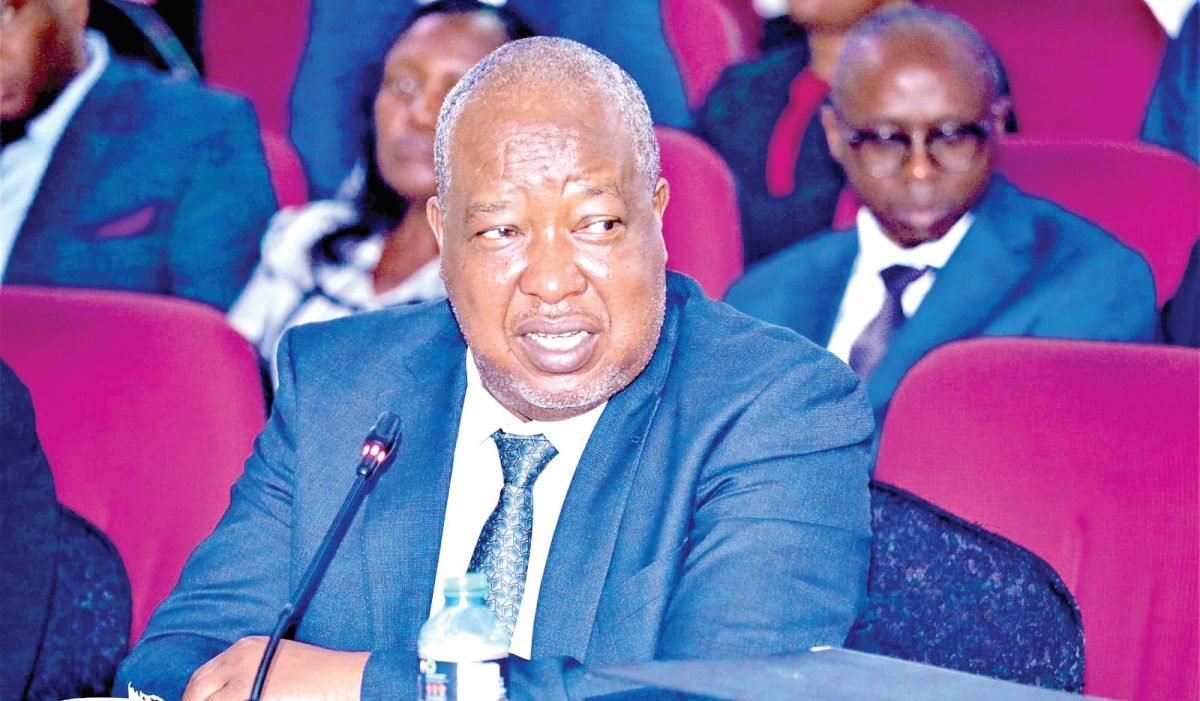Munya warns cartels, lobby groups in agriculture sector

The government has renewed its war against cartels in the agriculture sector, Cabinet secretary Peter Munya said disclosed yesterday.
Munya observed that for years the underground criminals have been applying practices of unethical trade behaviour to deny small-scale farmers lucrative opportunities in the local and global markets.
The Agriculture minister that government is also committed to shielding farmers against business malpractices by lobby groups and trade associations.
“Plight of small-scale farmers has worsened over the years as cartel groups continue to use unorthodox means to segment markets, set prices, frustrating execution of reforms, regulations and legislation governing various agriculture sub-sectors,” said the CS who is also in charge of Livestock, Fisheries and Cooperatives.
“The cartels have taken over the entire agriculture sector where they hoard commodities to cause scarcity and trigger a situation of high prices and equally evade paying taxes with assistance of some errant government officers,” Munya had said last when he took over reigns at Agriculture ministry.
When announcing a mini-reshuffle President Uhuru Kenyatta decried the high exploitation of local small-scale farmers by a few individuals and trade associations, saying doing so has denied the growers an opportunity to enjoy their money.
“My second intent for the year is to increase the money in the pocket of the farmer.
This will be achieved by directing our anti-corruption efforts against those managing the agriculture sector and exploiting their positions for illegal gain and trading in conflict of interest.
I am also directing action to increase the revenues to the farmer as opposed to middle men and brokers,” Uhuru said.
The dominance of the majority of agriculture sub-sectors by cartels has been made easy by errant government officers who equally assist the lobbies to evade tax.
Majority of farmers in coffee, sugarcane, pyrethrum, tea, potato and maize are struggling with numerous challenges as the middlemen with the assistance of rowdy government offices controls the value chains.
Farmers have lost morale to boost production as the middlemen have curtailed their efforts to access the market.
Counting losses
For example, in coffee, sugarcane, pyrethrum, rice and potato sub-sectors are counting losses as the middlemen are controlling the entire value chain right from the farm to the market level.
Farmers instead are abandoning the crops and venturing into other economic activities which are less dominated by the cartels.
In coffee sub-sector, farmers have lost millions of shilling as their crop is stolen from factories even as they are denied opportunities to directly participate in the market.
Government programmes targeting small-scale farmers, for example, subsidised fertiliser and seeds are benefiting the cartels as the latter are assisted by errant government officers to receive the inputs.
Grinding poverty
Supporting the president remarks when he took over at the ministry, Munya said farmers are still grappling with grinding poverty despite their immense contribution to the country’s wealth creation.
The entire value chain, Munya added, is under the control of the lobbies and who largely undertake processing and marketing.
“Farmers are only involved in the production of coffee and then the crop is taken over by other players who have no interests of the growers at heart.
Once the leading country’s foreign exchange earner between 1960s and late 1980s, coffee is now in the hands of a few and mainly subsidiaries of multinational companies.
The crop is now fourth in terms foreign exchange earning after tea, horticultural and tourism.
Milling and marketing is controlled by private millers and marketers who earn millions of shillings every year from smallholder farmers.












